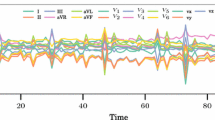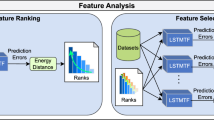Abstract
We address the task of discrete-time modeling of nonlinear dynamic systems using measured data. In the area of control engineering, this task is typically converted into a classical regression problem, which can then be solved with any nonlinear regression approach. As tree ensembles are a very successful predictive modelling approach, we investigate the use of tree ensembles for regression for this task.
While ensembles of regression trees have been extensively used and different variants thereof explored (such as bagging and random forests), ensembles of model trees have received much less attention, being limited mostly to bagging of model trees. We introduce a novel model tree ensemble approach to regression, namely, bagging and random forests of fuzzified model trees. The main advantage of the new approach is that it produces a model with no discontinuities with a satisfactory extrapolation behavior, needed for modeling dynamic systems.
We evaluate existing tree ensemble approaches to regression and the approach we propose on two synthetic and one real task of modeling nonlinear dynamic systems coming from the area of control engineering. The results show that our proposed model tree ensembles outperform ensembles of regression trees and have comparable performance to state-of-the-art methods for system identification typically used in control engineering. The computing time of our approach is comparable to that of the state-of-the-art methods on the small problems considered, with the potential to scale much better to large modeling problems.
Access this chapter
Tax calculation will be finalised at checkout
Purchases are for personal use only
Preview
Unable to display preview. Download preview PDF.
Similar content being viewed by others
References
Nelles, O.: Nonlinear system identification: from classical approaches to neural networks and fuzzy models. Springer (2001)
Cristianini, N., Shawe-Taylor, J.: An Introduction to Support Vector Machines and Other Kernel-based Learning Methods. Cambridge University Press (2000)
Rasmussen, C.E., Williams, C.K.I.: Gaussian Processes for Machine Learning. MIT Press (2006)
Breiman, L.: Bagging predictors. Machine Learning 24(2), 123–140 (1996)
Breiman, L.: Random forests. Machine Learning 45(1), 5–32 (2001)
Murray-Smith, R., Johansen, T. (eds.): Multiple Model Approaches to Modelling and Control. Taylor and Francis systems and control book series. Taylor and Francis, London (1997)
Geurts, P., Ernst, D., Wehenkel, L.: Extremely randomized trees. Machine Learning 63(1), 3–42 (2006)
Breiman, L.: Randomizing outputs to increase prediction accuracy. Machine Learning 40(3), 229–242 (2000)
Wang, Y., Witten, I.H.: Inducing model trees for continuous classes. Poster Papers of the 9th European Conference on Machine Learning (ECML 1997), Prague, Czech Republic, pp. 128–137 (1997)
Quinlan, J.R.: Learning with continuous classes. In: Proceedings of the 5th Australian Joint Conference on Artificial Intelligence, vol. 92, pp. 343–348 (1992)
Hall, M., Frank, E., Holmes, G., Pfahringer, B., Reutemann, P., Witten, I.H.: The WEKA data mining software: an update. ACM SIGKDD Explorations 11(1), 10–18 (2009)
Kocijan, J., Likar, B.: Gas–liquid separator modelling and simulation with Gaussian-process models. Simulation Modelling Practice and Theory 16(8), 910–922 (2008)
Henson, M.A., Seborg, D.E.: Adaptive nonlinear control of a pH neutralization process. IEEE Transactions on Control Systems Technology 2(3), 169–182 (1994)
Jang, J.S.R., Sun, C.T., Mizutani, E.: Neuro-Fuzzy and Soft Computing–A Computational Approach to Learning and Machine Intelligence. Prentice Hall (1997)
Author information
Authors and Affiliations
Editor information
Editors and Affiliations
Rights and permissions
Copyright information
© 2013 Springer-Verlag Berlin Heidelberg
About this paper
Cite this paper
Aleksovski, D., Kocijan, J., Džeroski, S. (2013). Model Tree Ensembles for Modeling Dynamic Systems. In: Fürnkranz, J., Hüllermeier, E., Higuchi, T. (eds) Discovery Science. DS 2013. Lecture Notes in Computer Science(), vol 8140. Springer, Berlin, Heidelberg. https://doi.org/10.1007/978-3-642-40897-7_2
Download citation
DOI: https://doi.org/10.1007/978-3-642-40897-7_2
Publisher Name: Springer, Berlin, Heidelberg
Print ISBN: 978-3-642-40896-0
Online ISBN: 978-3-642-40897-7
eBook Packages: Computer ScienceComputer Science (R0)




